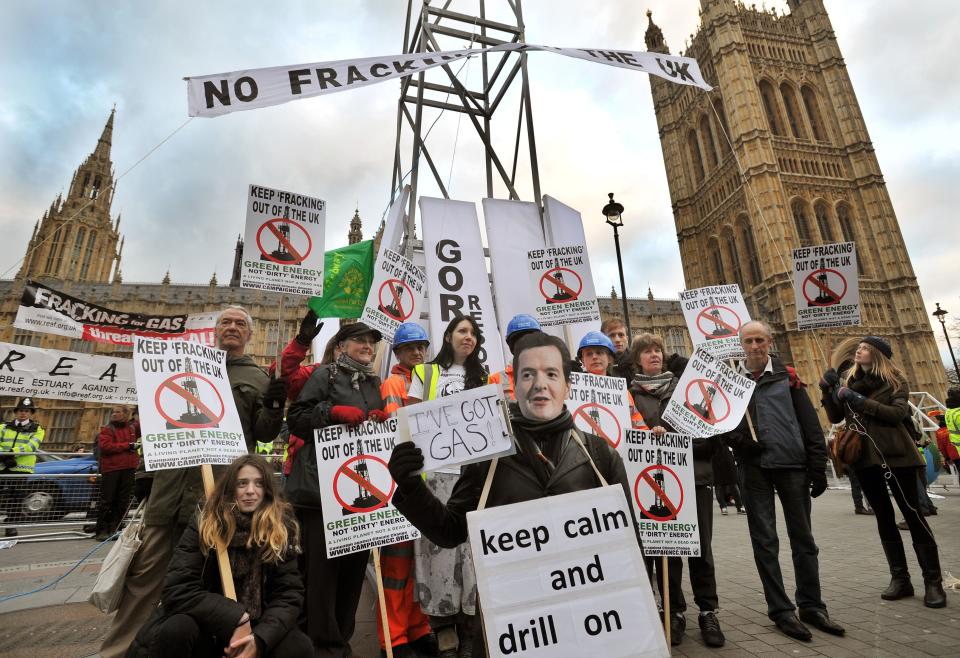Fracking: 'Massive, unsafe gamble' or 'the future of our energy security'?
Yahoo! News UK looks at the dangers associated with fracking, along with the potential benefits of the high pressure process.
The controversial shale gas exploration process of 'fracking' was today approved by ministers, following a ban which had been imposed in 2011.
But as gas firm Cuadrilla were given the go-ahead to resume operations in Lancashire, conservationists insist it has serious environment and safety issues.
Yahoo! News UK looks at the dangers associated with fracking, along with the potential benefits of the high pressure process.
A shortening of 'hydraulic fracturing', 'fracking' involves drilling down and creating small explosions to shatter shale rock.
Water, sand and chemicals are blasted at high speed into a shaft to crack the rock and release gas.
After fissures are opened out, gas is driven out by the pressure and released up to the surface.
Fracking can be used to create new gas pathways, or to extend pathways that are already there.
The gas industury says it is safe, clean and sustainable, but environment groups say it poses human health risks and presents a problem for global warming.
Shale gas boosts the worldwide gas supply, and can help reduce the market cost.
Fears surrounding fracking have escalated due to various horror stories from overseas, with the process causing problems in France, America and Australia.

In the U.S., where fracking is widely used, there have been reports of tap water igniting due to apparently being contaminated because of the process.
The divisive subject will even be the subject of a Hollywood film later this month, when Matt Damon stars in 'Promised Land', about a natural gas company salesman attempting to buy drilling rights in a small U.S. town.
Australian farmers have also formed opposition to the process, due to ground water and soil contamination fears.
In the UK, the process was banned in 2011 when test-drilling caused two minor earthquakes in Lancashire's Flyde coast.

A 1.5 magnitude quake struck the area in May last year, two months after a 2.2 magnitude tremor struck Blackpool.
The Government's Department for Energy and Climate Change has since asked three experts to make an independent assessment of fracking in the North West and its risks.
Their report said that more earthquakes as a result of fracking were possible, but that the risk was low and structural damage very unlikely.
Energy Secretary Ed Davey shale gas is 'a promising new potential energy resource for the UK'.
He said: "It could contribute significantly to our energy security, reducing our reliance on imported gas, as we move to a low carbon economy."

Global warming is also a concern, however, because as an abundant fossil fuel it could be a cheaper alternative than some renewable energy sources.
Greenpeace say that the Government's plans to replicate the U.S. use of fracking is a 'dangerous fantasy'.
They also say there are fears over the quality of the drinking water near another proposed UK fracking site in Sussex.
Criticism has also come from the likes of the RSPB, who say Cuadrilla's plans for 800 fracking well heads in Lancashire will radically alter bird life in what it a special environmental area.
If Cuadrilla do get their way, there could be some very prolonged rumblings of discontent in a gas extraction process which very few seem to want.

 Yahoo News
Yahoo News 
